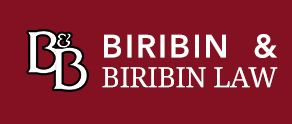Wills/Living Wills
Everyone should have a will, especially if there are children involved. However, most people do not want to face the concept of mortality and shy away from talking about their possible death. The absence of a will deprives you of the right to make choices regarding distribution of your assets and necessitates the posting of a bond by the appointed administrator which can be costly.
Living wills and health care directives give you the opportunity to decide what happens if the doctor says your condition is terminal and you are not capable of making a decision at that time. By making these decision ahead of time and communicating them clearly in writing, this means that your loved ones will not have to bear the responsibility of guessing what your wishes would be in such a circumstance.
Trusts
A trust is where a legal relationship is used to protect assets for the future use by your beneficiaries. A trust can be used as part of estate planning to ensure your family is not burdened with things such as health care costs and estate taxes, and in other instances such as planning for the future of a special needs child.
Powers of Attorney
A Power of Attorney (POA) is a document that allows you to grant someone to act on your behalf. There are different levels of POA. A general power of attorney gives someone the power to handle financial and business transactions, operate your business, make gifts, and employ professional help. General power of attorney is an effective tool if you will be out of the country and need someone to handle certain matters, or when you are physically or mentally incapable of managing your affairs. Other POA’s include Special POA for a specific instance, Health POA that only pertains to health matters and a Durable POA that ensure the POA stays in effect should you be ruled mentally incompetent. If a POA has not been done, it may be necessary for a family member to apply for guardianship so that they can make decisions on your behalf.
Estate Administration
Probate is the process which permits the transfer of assets in accordance with a Will to the beneficiaries under the will. When no will exists, the statutes of NJ provide for the distribution of property to heirs by intestate succession. If you die without leaving a will and are a resident of New Jersey the State Law provides the manner for distributing your property. Not all assets must go
through probate to be transferred. Some assets pass by operation of law to other persons without the need for probate or may not have to go through probate depending on how title to the asset is held.

